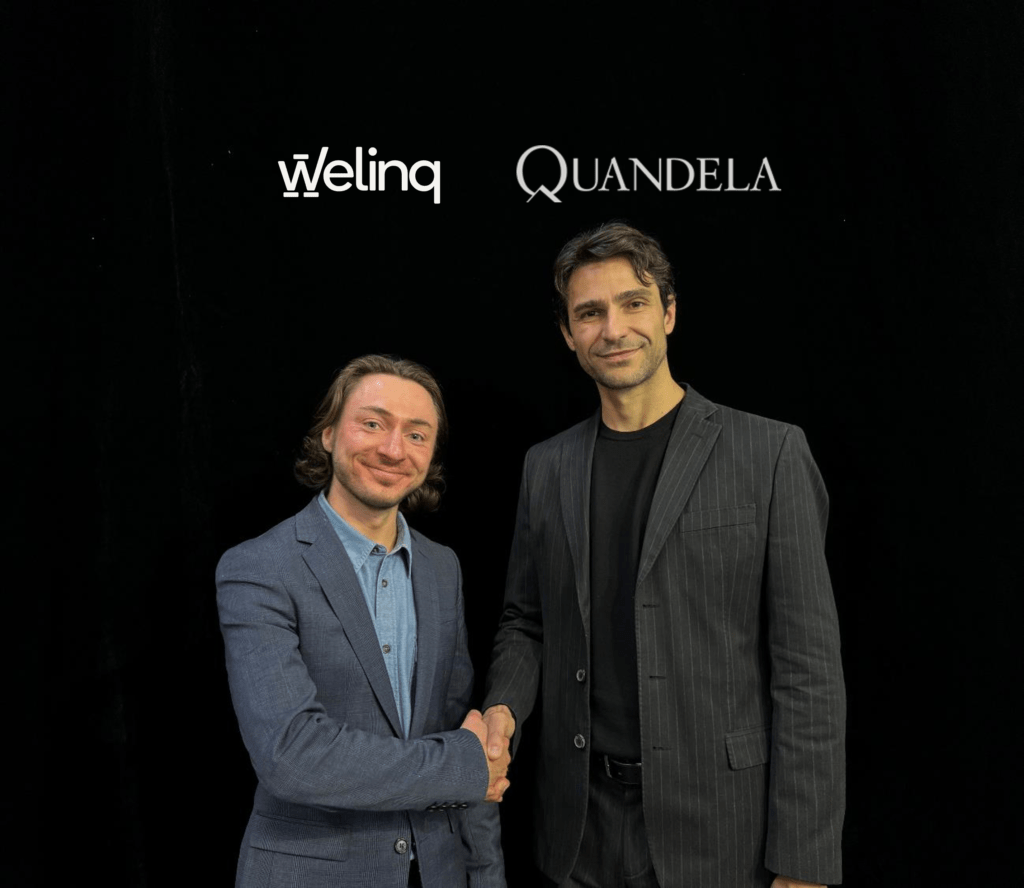Quandela the European leader in photonic quantum computing, and Welinq, a leading quantum networking company, proudly announce a transformative partnership for the quantum industry. This collaboration combines Quandela’s expertise in photonic quantum computing with Welinq’s pioneering full-stack quantum interconnects technology, to provide custom quantum links for photonic quantum computers, setting new industry standards and paving the way for clusters of interconnected and error-corrected photonic quantum computers.
Advancing QPU scaling
To achieve all the promises of quantum computing’s powers, Quantum Processing Units (QPUs) will need to execute algorithms across vast numbers of qubits, this making error correction even more important. In joining forces, Welinq’s state-of-the-art quantum interconnects combined with Quandela’s quantum processors, will support fault-tolerant computing and the expansion of comprehensive quantum networks, beyond the capabilities of a single chip.
“This strategic partnership with Welinq marks a significant milestone in our quest to scale photonic quantum computing. By combining Quandela’s expertise in photonic quantum processors, with Welinq’s cutting-edge quantum interconnect technology, we’re laying the groundwork for clusters of interconnected, error-corrected photonic quantum computers. This collaboration puts us at the forefront of the quantum revolution, bringing us closer to enable the full potential of quantum computing via networked quantum computers.” Niccolo Somaschi, CEO and co-founder, Quandela
“Welinq’s interconnect technology natively offers compatibility with all existing QPU architectures. We are delighted to partner with Quandela, a recognized leader in photonic quantum computing, to push the boundaries of our full-stack quantum interconnect technology and demonstrate the added value of our solution for scalability and error correction.” Tom Darras, CEO and co-founder, Welinq

Tom Darras, CEO and co-founder, Welinq and Niccolo Somaschi, CEO & co-founder, Quandela
Importance of Photonic QPUs and Quantum Interconnects
Photonic QPUs, such as those developed by Quandela, offer significant advantages due to their inherent modularity. This modular design enables computing scalability, as additional qubits can be seamlessly integrated into the system. As the carriers of quantum information, photons provide high-speed data transmission with minimal interference, making photonic QPUs highly efficient and reliable for complex quantum computations. Scaling to a large number of qubits will involve the interconnection of multiple independent photonic QPUs, a process that demands additional technological advancements and represents a huge technological challenge in itself.
Full-stack quantum interconnects based on efficient quantum memories are crucial for linking multiple QPUs regardless of the qubit modality. These interconnects enhance the overall computational power by allowing quantum information to be transferred between different processors with high fidelity and low latency. Welinq’s state-of-the-art quantum memories ensure that the integrity of quantum information is maintained during transmission, which is essential for the development of robust and scalable quantum networks.
Implementing a multi-pronged approach
This partnership is in line with Quandela and Welinq’s desire to work together to develop fully-fledged clusters of photonic quantum computers, which would have both hardware and algorithmic advantages over alternative approaches.
This technological partnership is in line with the announcement a few weeks ago of the AQADOC project, the world’s largest initiative dedicated to distributed quantum algorithms, led by Welinq and of which Quandela is a key member. The aim of this project is to explore energy-related use-cases and to develop the next generation of distributed software capabilities, capable of running on several QPUs interconnected by the hardware work to be carried out as part of this strategic partnership.
About Quandela
Quandela, entreprise leader dans le domaine du calcul quantique, propose des solutions de niveau industriel. Quandela conçoit, construit et fournit des systèmes quantiques prêts à l’emploi pour les datacenters, des processeurs quantiques accessibles via le cloud, et des services d’accès aux algorithmes.
Fondée en 2017 par la professeure Pascale Senellart, directrice de recherche au Centre de nanosciences et nanotechnologies (C2N) du CNRS, Niccolo Somaschi et Valérian Giesz, experts de renommée internationale en physique quantique, Quandela emploie plus de 100 collaborateurs de 20 nationalités différentes, en majorité des chercheurs et des ingénieurs en optique, algorithmes et sciences de l’information.
Quandela s’engage à rendre l’informatique quantique accessible à tous pour relever les défis industriels et sociétaux les plus complexes.
Pour en savoir plus : www.quandela.com
GB
Quandela, a leader in quantum computing, specializes in industry-grade quantum computing solutions. Quandela designs, builds, and supplies datacenter-ready quantum computing systems, cloud-accessible quantum processors, and algorithm with industrial value.
Founded in 2017 by Professor Pascale Senellart, Research Director at the Centre for Nanosciences and Nanotechnologies (C2N) at CNRS, Niccolo Somaschi and Valerian Giesz, internationally renowned experts in quantum physics, Quandela currently has over 100 employees from 20 different nationalities, mostly researchers and engineers in optical, algorithm and data science.
Quandela is committed to making advanced quantum computing accessible and beneficial for all, empowering innovators to solve the most complex industrial and societal challenges.
About Welinq
Welinq is a pioneering Quantum Networking company that develops and commercializes quantum links based on laser-cooled neutral atom quantum memories to interconnect quantum computers in order to drastically increase their computational power and to ensure their deployment in clusters on customer premises. Welinq is a spin-out from Sorbonne Université, CNRS and PSL-University, founded in 2022 by Tom Darras, Prof. Julien Laurat, Dr. Eleni Diamanti and Jean Lautier-Gaud.
To learn more about Welinq, visit www.welinq.eu



